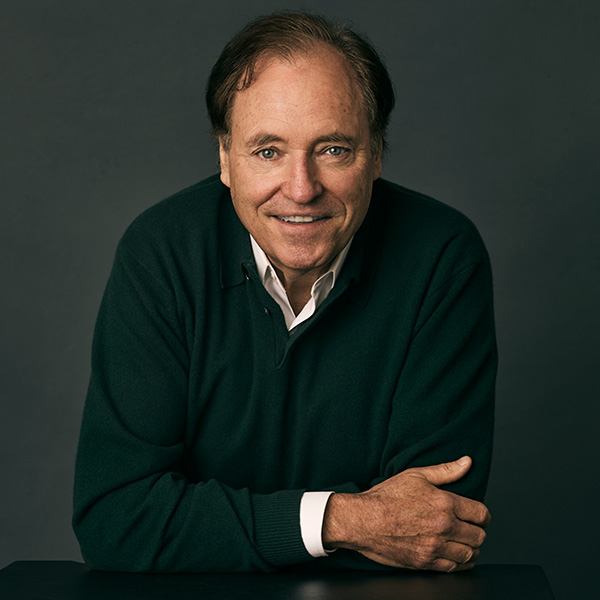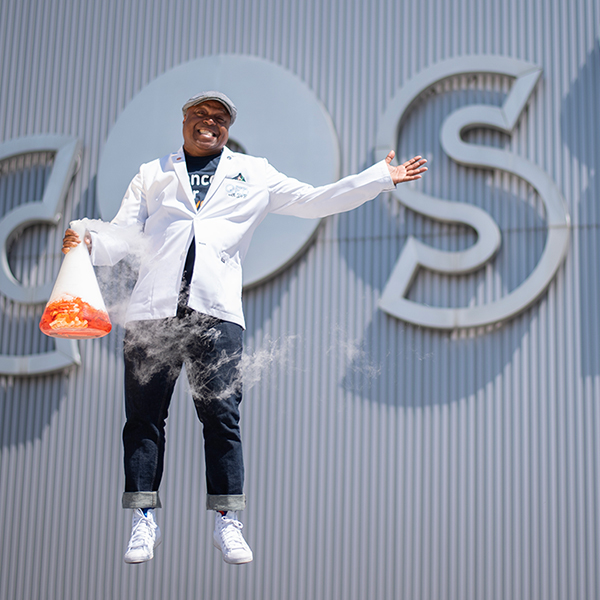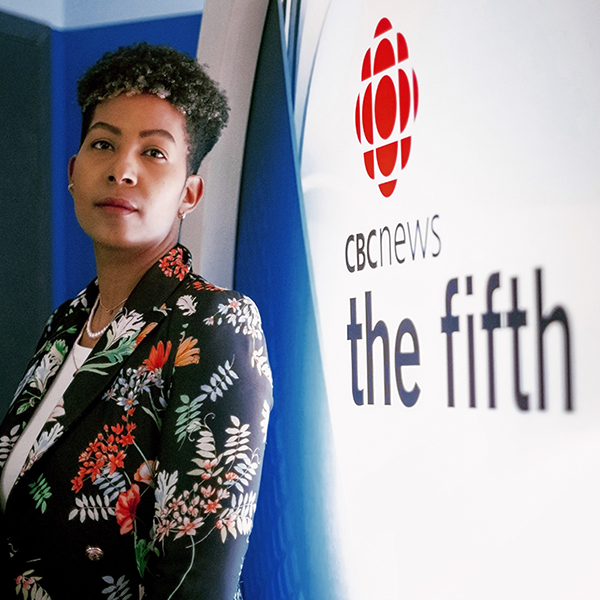After three years of a pandemic — and the social austerity it caused — many of us are desperate to pick up where we left off in 2019. This flurry of activity, however, begs a very important question: what do we consider normal today?
Or perhaps the more appropriate question is, who do we consider normal?
As a disability rights expert and a professor of law at the University of Windsor, Laverne Jacobs, BA’94, BCL’99, LLB’99, has spent more than 15 years thinking about that very question — and will be thinking about it a lot more in 2023 as she steps into her new role as the first-ever Canadian member of the UN Committee on the Rights of Persons with Disabilities.
“Disability is part of human variation,” she says. And yet, having a disability is still considered abnormal — even though Statistics Canada reports that one in five Canadians have one or more disabilities, ranging from chronic pain, to mental illnesses, to quadriplegia.
Our rigid concept of the “norm” has infiltrated most of the country’s administrative, judicial and socioeconomic systems, often refusing to bend to accommodate the variations of disability. This has come to the fore in a number of ways as Canadian citizens, companies and institutions seek to regain their ways of living that they lost during COVID — for instance, refusing to re-implement a mask mandate to collectively protect vulnerable people.
It’s these kinds of systems failures that Jacobs has spent most of her career fighting to fix.
Raised in Scarborough, Ontario, Jacobs had an early passion for the French language, graduating from McGill in 1994 with an undergraduate degree in French literature. She decided to study law next, but admits, “I went to law school not knowing exactly where I would specialize.”
Soon after she began her legal studies, that changed.
“I was drawn to administrative law which is the law surrounding interactions between people and government,” says Jacobs. “I was captivated by the importance of the administrative justice system to members of the everyday public and completed my doctorate in administrative law. I continue to write in the field of administrative law and, in particular, the administrative justice system’s engagement with marginalized communities, especially persons with disabilities.”
In addition to teaching law at Windsor, she served as an adjudicator and mediator of the Human Rights Tribunal of Ontario. In 2014 she founded the Law, Disability and Social Change Project, which does research on law and policy issues such as accessibility, legal aid and consent, with the aim of helping people with disabilities fully achieve their rights. She has authored or co-authored several books and articles on disability equality issues and is presently working on another book about accessibility legislation, due to be released in a year or so. She has also contributed legal advice on disability equality files.
“I think we need to create laws, policies and practices that have what I call ‘first order equality’ in mind — so, from the get-go, we need to think inclusively. We need to design practices that would not have negative impacts on persons with disabilities,” says Jacobs.
In 2021, Jacobs received the Canadian Bar Association’s Touchstone Award, a prize that recognizes “the accomplishments of an individual or an organization who has excelled in promoting equality in the legal profession, the judiciary, or the legal community in Canada.” That same year marked the publication of Law and Disability in Canada: Cases and Materials, the first textbook of its kind in the country. Jacobs was its editor and lead author.
Her track record has led her all the way to the United Nations, where she is starting a four-year term. Upon her election in June 2022, Canada’s ambassador to the UN Bob Rae tweeted his congratulations: “Thrilled that Laverne Jacobs has been elected to the Commission! She will be a great advocate for persons with disabilities.”
At the UN, Jacobs is looking forward to digging into the processes and systems at the heart of the Convention on the Rights of Persons with Disabilities, struck to support disability equality and inclusion around the world. Adjudicating allegations of state violations of disability rights, interpreting and implementing articles in the Convention, participating in reflections about what works well and what could use more work — all of it is fascinating to Jacobs.
It’s familiar territory, on both sides of the aisle.
Jacobs has been responsible for instituting systems and processes, particularly when she became the first associate dean for research at the University of Windsor’s law school.
As a wheelchair user, Jacobs has also personally come up against systems and structures that routinely fail people with disabilities. The expansive array includes hostile architecture, ineffective transportation, lack of access to justice, institutionalized discrimination and administrative violence — a term from transgender theory that Jacobs adapted to describe the negative effects of inappropriately designed bureaucratic processes on people with disabilities.
These systems merit critical examination, says Jacobs: “This is part of the reason why we need as much universal access as possible, but we also need to think at the borders, the margins, about how to accommodate those who still won’t fit in if we have a ‘universal access system.’”
Intersectionality within disability also demands better understanding, says Jacobs. It’s common to think of the disability community as a monolith with a common set of problems, needs and goals. Really though, women, people of colour, 2SLGBTQ+, low-income people, seniors and those with other forms of “otherness” experience disability — and the public perception of disability — differently. That’s particularly true when a person has two or more intersecting characteristics that put them at risk of further marginalization.
“I’m a Black woman with a disability trying to pull together the ways in which disabilities affect, in that intersectional way, people of different minority backgrounds, affect women, elderly people, etcetera,” Jacobs says.
“I think those are all really important areas that need more exposure and need more direct study. We need more data, both statistical but really, I think qualitative — finding out how people are existing or not, and what challenges they’re facing.”


